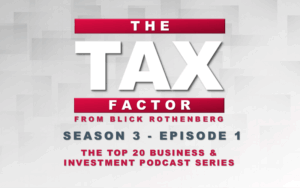
Closing the Fiscal Black Hole
Why Tackling the £46.8bn Tax Gap Should Be Rachel Reeves’ Priority
3 September 2025 | Author: Fiona Fernie
The Chancellor, Rachel Reeves, will deliver the 2025 Autumn Budget to Parliament on Wednesday, 26 November
Against a backdrop of a reported £50 billion shortfall in the nation’s finances, the question is where the funds will come from?
If the Government is serious about restoring confidence in the UK’s economy, closing the £46.8 billion tax gap must be front and centre of the Chancellor’s strategy.
The Scale of the Challenge
The latest HMRC data shows the tax gap – the difference between the tax that should, in theory, be collected and what actually comes in – is £46.8bn. Strikingly, this figure is almost identical to the £50bn “black hole” Reeves is under pressure to fill.
Fiona Fernie, Partner, explains:
If Rachel Reeves wants to address the UK’s economy, tackling the tax gap is an obvious choice. HMRC’s last annual report had the tax gap at £46.8 billion, a similar size to the reported £50 billion ‘black hole’ in the country’s finances.
Where the Gap Lies
The composition of the tax gap tells an important story for entrepreneurs and business owners:
- Small businesses account for around 60% (£28.1bn) of the shortfall
- The wealthy contribute just 5% (£2.3bn)
This imbalance has persisted for four years, yet there is little evidence of a coherent government strategy to address it. No other taxpayer group represents more than 15% of the gap.
Structural Issues at Play
One reason small businesses dominate the tax gap lies in regulatory blind spots. Sole traders are not required to register with Companies House, making it easier for some to operate outside HMRC’s line of sight. Even incorporated small businesses often file only abbreviated accounts, which exclude profit and loss data – a critical omission that makes it harder to judge true earnings and tax liability.
Fiona argues that greater transparency is overdue:
Perhaps it is time for all small businesses, whether corporate or not, to be obliged to register at Companies House and file full accounts. The increased level of information available to the authorities might make it easier for HMRC to identify underpayments of tax with less resource needed to mount full-blown investigations.
Beyond Political Tinkering
Current policy proposals, aimed at raising revenue without breaking manifesto promises, risk being incremental at best. Fiona concludes:
Many of the proposals Rachel Reeves is making are tinkering round the edges of raising funds. But arguably we don’t need a political approach to the country’s finances – we need a practical one that directly addresses issues like the tax gap.
What This Means for Entrepreneurs and High Net Worth Individuals
For those building businesses or managing significant personal wealth, the implications are twofold:
Increased scrutiny – Expect HMRC to ramp up efforts to close the gap, particularly by targeting under-reporting in smaller enterprises.
Shifting policy focus – With limited appetite for headline tax rises, Reeves may instead lean on structural reforms that bring more businesses into visibility.
Next Steps
As the Autumn Budget approaches, it is crucial for entrepreneurs, investors and high net worth individuals to prepare for possible shifts in tax compliance, reporting and disclosure requirements.
If you would like to discuss how the Autumn Budget could impact your business, your wealth or your long-term financial plans, please contact your usual Blick Rothenberg adviser or Fional using the form below.
Contact Fiona

You may also be interested in

Record £2.4 Billion in Tax Relief Signals Government Backing for UK’s Creative Industries

US Insights – Tariff Changes: What UK Founders and CFOs Need to Know













